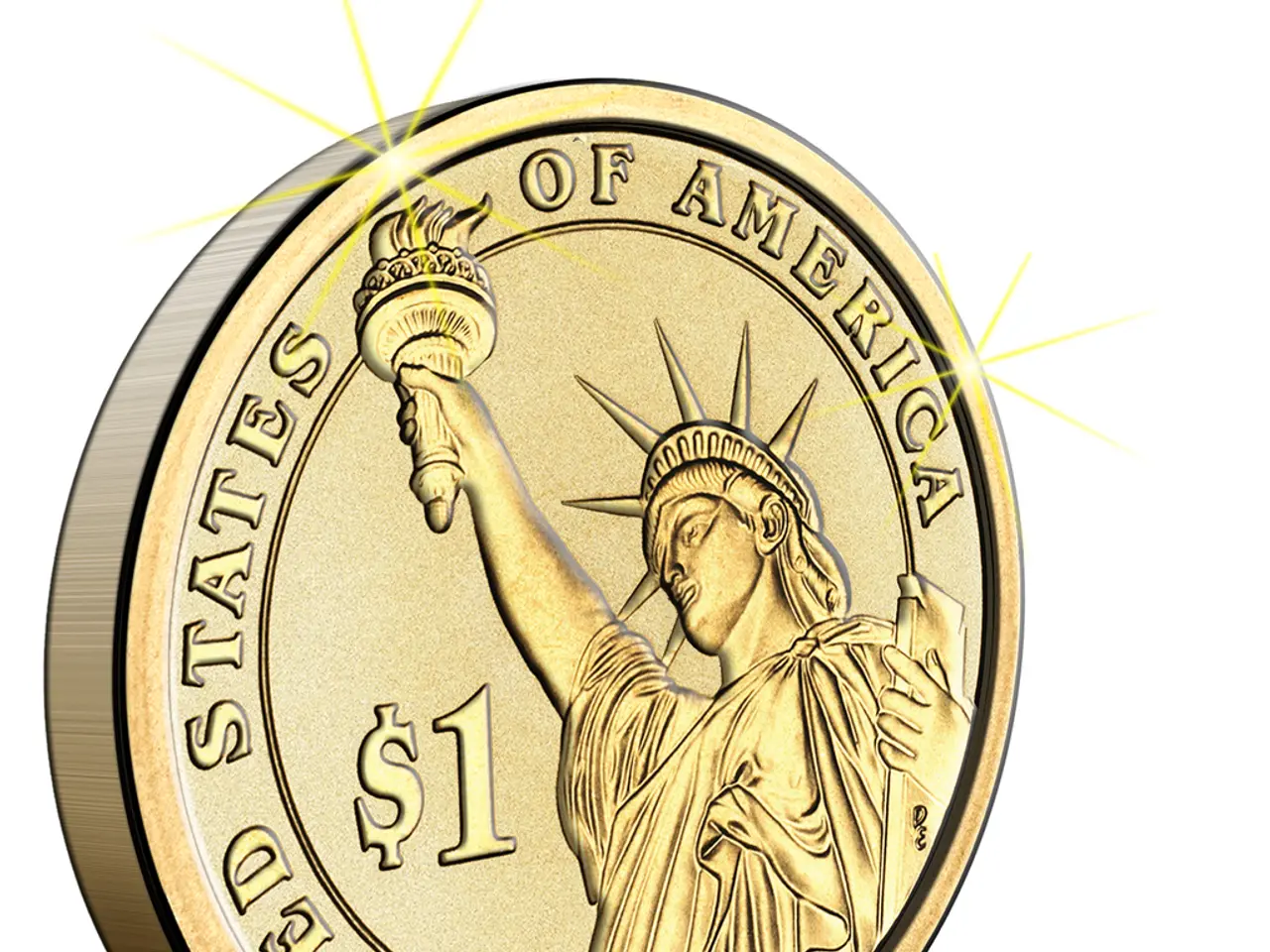Coin vs Paper Money Dispute!
In the ever-evolving world of finance, cryptocurrency is making a significant impact. This digital currency, operating outside the purview of central banks and financial institutions, offers a new way of carrying out transactions globally within seconds without involving middlemen.
Cryptocurrency's potential to revolutionise online shopping in the e-commerce sector and its increasing adoption by financial institutions, merchants, and countries like El Salvador, are signs of its growing relevance. However, the debate over whether cryptocurrency or fiat currency will ultimately prevail is still ongoing.
One area where cryptocurrency stands out is in financial supply chain management. Cryptocurrencies, operating on decentralized blockchain networks, enable direct peer-to-peer transactions without intermediaries like banks. This reduces transaction costs and times, streamlining supply chain payments, especially with stablecoins that offer fast and cheap transfers compared to digital assets like Bitcoin, which have higher volatility and slower transactions at peak times.
Transparency is another key advantage of cryptocurrency. Blockchains maintain a distributed ledger where transactions are recorded publicly and immutably, providing enhanced auditability and reducing fraud in financial supply chains. In contrast, fiat systems rely on centralized institutions and opaque ledgers.
Algorithmic payments are another area where cryptocurrencies excel. Many cryptocurrencies, especially smart contract platforms, enable programmable self-executing payments. This can automate cash flows, escrow arrangements, conditional releases, and complex workflows in supply chains without human intervention. Fiat systems generally require manual or semi-automated processing through banks or payment networks.
Inflation resistance is another advantage of cryptocurrencies. Unlike fiat currencies issued and controlled by central banks that may increase supply causing inflation and currency devaluation, many cryptocurrencies (notably Bitcoin) have a fixed maximum supply. This scarcity provides resistance to inflation since supply growth is algorithmically capped and not subject to policy changes.
Comparatively, fiat currency transactions are slower, costlier, and less transparent due to the need for intermediaries. Fiat systems also lack the programmable payment capabilities and inflation resistance found in many cryptocurrencies.
| Aspect | Cryptocurrency | Fiat Currency | |-------------------------|------------------------------------------------|------------------------------------------------------| | Supply Chain Efficiency | Faster, cheaper transactions, especially stablecoins | Slower, costly processing via intermediaries | | Transparency | Public, immutable blockchain ledger | Centralized control, less transparency | | Algorithmic Payments | Smart contracts enable automated, conditional payments | Manual or partially automated via banks | | Inflation Resistance | Fixed or algorithmically limited supply | Supply controlled by central banks, subject to inflation |
In conclusion, cryptocurrencies offer decentralized transparency and programmable payments that reduce friction and increase trust in financial supply chains. Their fixed or algorithmically controlled supplies provide a hedge against inflation, unlike government-issued fiat currencies prone to inflationary policies. Stablecoins specifically combine the benefits of cryptocurrency rails with near-stable value needed for practical payments.
As the world continues to embrace digital technology, the use of cryptocurrency is expected to grow, offering a more efficient, transparent, and secure way of conducting financial transactions.
Investing in technology such as cryptocurrencies can lead to advancements in global trade, particularly in supply chain management, due to their decentralized nature, programmable payments, and transparency, offering a more secure and efficient way of conducting financial transactions. On the other hand, financial institutions and investors still need to consider the volatility of cryptocurrencies like Bitcoin during peak times and the ongoing debate between the ultimate prevalence of cryptocurrency or fiat currency.




